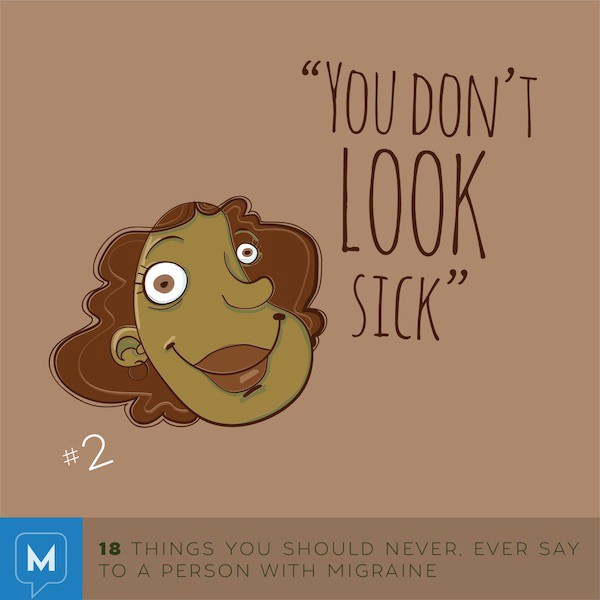My mother has suffered from migraines for the better part of 40 years. The general population associates ‘migraine’ with ‘just a bad headache’; those who’ve experienced or have been around someone experiencing a migraine know better. This past year she took a short-term and subsequent long-term disability from her job as a Nutrition & Wellness professor. It took her a year to even consider taking disability due to the stigma associated with the term. She feared it would redefine who she was as a working professional, mother, and person.
This past year of our relationship has been the most difficult of our 29 years relationship. I often feel like the parent, struggling with her newfound openness about her illness, wellbeing, and mental health. Our interactions are less about my twentysomething struggles with dating, work, and random New York City life and more focused on her battle with migraines.
Initially, I tried to avoid the fact that my mother had a life-altering disability. I thought that this was just a phase, and she would get better. That one day our conversations — our lives — would go back to normal. It took six months of avoidance before I realized that her struggle with disability is significantly harder than my adjustment to our new relationship dynamic.
Three key mindsets helped me grow and redefine our relationship. This new outlook ultimately led me to become a better daughter, stronger peer, and better friend to my mother because, not in spite of, her disability.
Listen to their needs even if you’ve heard them before.
I call my mom every morning while walking to the subway. The first question asked is, “How are you feeling today?” Frequently she’s woken up at 3AM with a blinding migraine and taken strong prescription medicine with severe side effects. By the time we talk, she is half-awake and foggy, but attempting to have a somewhat normal day. The response isn’t as important as the fact that she can share with me how she’s truly feeling. I’ve actively worked to become a safe space. Her friends and family who aren’t migraine or long-term pain sufferers don’t understand what she’s going through. Often, I can only empathize so much with her plight, but giving her the peace of mind that someone is listening can be enough.
Be grateful that this person is still in your life and let them know.
Often I bite my tongue knowing that lashing out or snapping only makes the situation worse. My mom isn’t what she was in a lot of ways. She was a wonder woman who managed fifteen things at once in her life and about nine others in mine at the same time. While her disability changes a lot of her day-to-day functionality, it doesn’t make her any less of a wonder woman, just one with a different set of powers. Without her I wouldn’t be 1000th of the person I am today, so I actively apologize for the slightest snap and proactively withhold attitude that might have been more loosely doled out.
More than ever I make sure she knows that I love her at the end of every interaction. If something happens to either of us, there is no worry of ill will or negative last words, our feelings for each other are loving and clear.
“Unlike a headache, the Migraine disease has many symptoms, including nausea, vomiting, auras (light spots), sensitivity to light and sound, numbness, difficulty in speech, and severe semihemispherical head pain. One Migraine attack alone can last for eight hours, several days, or even weeks.”
Do your research.
I take every opportunity to talk with someone about their migraine experiences. It is a hidden disability since it isn’t super visual to those who can’t recognize the symptoms — and even then, my mom went to work for 23 years as a college professor and worked as if she didn’t have a migraine pounding her skull.
Knowing more information about what the disability is, how it manifests, and continually learning and reading from resources allows for a healthier level of empathy and awareness that can only improve the relationship. By having conversations and reading articles on migraines my mom and I can connect about the disability on another level beyond her experiences.

http://www.migraines.org/myth/mythreal.htm
https://migraine.com/infographic/18-things-not-to-say/
Originally published at medium.com


